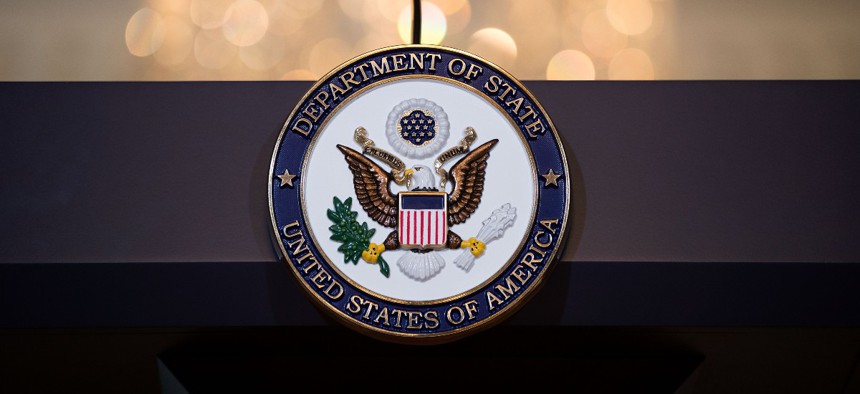State Department Announces First Bureau of Cyberspace and Digital Policy

Drew Angerer/Getty Images
The new office will work to advance foreign and domestic security through modernizations featuring new and emerging technology.
The U.S. Department of State announced Monday the formation of its first Bureau of Cyberspace and Digital Policy, an office emphasizing the digital modernization in the federal sphere that is a key mission within the Biden administration.
Some of the areas of focus include national security, economic developments and digital technologies, all within a policy lense.
“The Bureau of Cyberspace and Digital Policy leads and coordinates the Department’s work on cyberspace and digital diplomacy to encourage responsible state behavior in cyberspace and advance policies that protect the integrity and security of the infrastructure of the internet, serve U.S. interests, promote competitiveness and uphold democratic values,” the office’s website reads.
A Senate-confirmed Ambassador-at-Large will helm the office, with Jennifer Bachus—previously the deputy chief of mission at the U.S. Embassy in Prague, Czech Republic—serving as its inaugural lead.
The CDP will include three distinct policy offices, including International Cyberspace Security, International Information and Communications Policy, and Digital Freedom.
In a statement, Secretary of State Antony Blinken said that the new office will usher in a new focus in U.S. foreign and domestic security by incorporating emerging technologies into policy decisions.
“On cyberspace and emerging technologies, we have a major stake in shaping the digital revolution that’s happening around us and making sure that it serves our people, protects our interests, boosts our competitiveness and upholds our values,” Blinken said. “We want to prevent cyber attacks that put our people, our networks, companies and critical infrastructure at risk. We want the internet to remain a transformative force for learning, for connection, for economic growth, not a tool of repression. We want to shape the standards that govern new technology, so they ensure quality, protect consumer health and safety, facilitate trade, respect people’s rights.”
Modernization is also a goal the office hopes to achieve. Blinken commented that the State Department will be asking for a 50% increase in its information technology budget and more sophisticated data strategy to build a robust technological environment within the agency.
“A learning institution is a strong institution—open to new insights, new information, new ways of working,” Blinken said.
NEXT STORY: Russian Disinformation: All Bot But No Bite?






